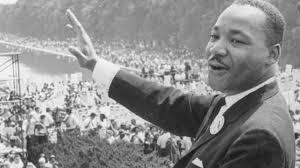
Few persons might think that the legacy of Dr. Martin Luther King, the legendary American civil right hero is still commemorated today as an enduring symbol of volunteerism and service.
Dr. King, also inspired by Gandhi, revolutionized the civil rights movement in the “deep south” of the States during the 50s and early 60s with the concept of non violent direct action, showing how civil disobedience can be a game changer in winning over the deepest resistances to a just and fair America.
For all these reasons, the day Dr. King was borne, 19th of January, is celebrated thorough the States as a “service day”. Commemorated each year on the third Monday of January, this public holiday was signed into law by President Regan in 1983, a celebration, referred by the King Center, the organization working to keep alive the legacy and work of Dr. King to celebrate the” immeasurable contribution to the United States, and to humankind”.
Still the idea itself of having a federal public holiday to commemorate Dr King was not cakewalk. It took many years of lobbying and campaigning to reach a political consensus across the parties to ensure Dr. King’s legacy would be celebrated every year.
The National Football League, the American football association, even threatened to move the Super Bowl, one of the most watched sport event in the USA from Arizona in 1993 when there was an attempt in that state to declare illegal the public holiday.
Yet despite the challenges, the third week of each January is still a national holiday focused on volunteerism and service. Throughout the nation citizens are encouraged to make it as a “day on” and not a “day off”. The First family this year was engaged in serving…
Truly the United States as a nation embodies the principles of volunteerism and civic action. There might be many reasons for it that even go back to the precise moments in which the States were created when “self help”, reciprocity and a culture of altruism became strong as a matter of survival.
Interesting enough Nepal boosts the same spirit for self help than the States. Local communities are rich and diverse in ancient traditions of “helping each other”. Volunteerism or service might be concepts exported from overseas but the reality is that both have been the essence of Nepali people since centuries.
In order to celebrate Dr. King’s accomplishments as well as highlighting the incredible contributions of volunteerism in Nepal, the American Embassy in partnership with ENGAGE organized, on 28th of January, a discussion talk about power of volunteerism. Through a diverse panel group, participants had the opportunity to discuss different meanings of volunteerism and how it can be strengthened in Nepal, showing that everybody, including persons living with disabilities, can contribute.
One issue emerged during the conversation was the great need to ensure that local traditions are not only preserved but also strengthened while more and more youths move to the urban areas throughout the nation.
It was encouraging to learn how the Government is planning to enact within this year a National Volunteering Policy that could offer new opportunities to engage more and more persons of all ages and socio economic conditions in actions of community services.
Unfortunately volunteering actions are not so visible and well highlighted and this is something that we must change. Nepal boosts incredible examples of activists at national but most importantly at local level.
We need to come up with a stronger approach to ensure that everybody fully understands the importance of celebrating local activists. Because volunteering is also about activism, about being engaged in a particular cause and we have an army of persons passionately involved in something they madly care about. Dr. King was a father, husband, and a religious leader but most importantly he was an incredible campaigner. Volunteerism is all about blending together different spheres of social action.
In 2011 the President of Nepal launched in Kathmandu the Global Report on Volunteerism an important initiative led by UNV. More could be done to celebrate volunteerism and service in Nepal. Why do not identifying a “national” Martin Luther King Day, a day where employees will not stop going to their offices but together with their colleagues. As the Americans say, it should be a day on, not a day off.
Can we reach a consensus on a national personality who dedicated her/his life to helping those in need?
Why do not we conduct a serious anthropological research to understand how strong the local patters of self help remain? Why do not we organize national volunteering awards where we celebrate individuals, organizations and private businesses involved in corporate volunteering?
While it is important to advocate through a national volunteering campaign, while it will be paramount to ensure that NDVS, the national volunteering program, to really become the national volunteering hub in a federal Nepal, an autonomous public institution to foster volunteerism, we should not forget that volunteerism and service is all about action.
Serving others should become the norm, a way of living. We should not ask others to volunteer; we should just encourage our family members, friends to do something for the others. Volunteering, in its essence, it is all about helping out. It starts with simple act of kindness and from here a person can build on a real culture of service. You can volunteer with your friends, with your children the way President and his family did at Boys & Girls Club of Greater Washington this year.
The Save Bagmati Campaign is an incredible example of national mobilization. Leaders joined the common people for such an important cause. Much more could be done to harness and protect such intangible and precious asset called swoyamsewa.










Add new comment